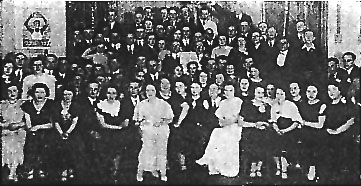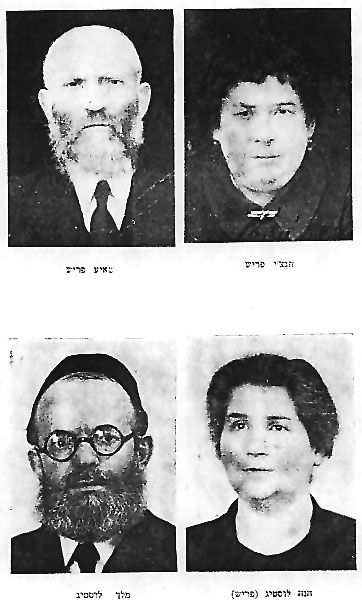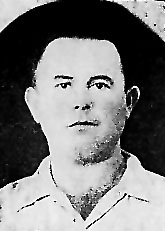 |
(note, Yiddish text says 1936)
Seated from the right: Bronka Berger, Dvortza Gelobter, Roza Mintz, Matilda
Prinz, Salka Horowitz and her sister, Reizsha Rechtschaffen, Matilda Hofnung,
Dr. Minkes and his wife, Etka Adlerstein, Blumtza Rechtschaffen.
Behind them: Shabtai Falik, Estzi Treu, Marek Roter,
Rozia Falik, Yehuda Hirsch Stern.
Second row from upper right: Dr. Leon Meiseles, Max Adelstein.
Above them: Philip Fuerst.
In the center holding the scroll: Shabtai Rosenberg, Godel Schwalb






